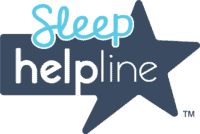Navigating the workplace with narcolepsy? Narcolepsy Nerd Alert: Narcolepsy at Work discusses gaining accommodations and practical tips for success.
The Narcolepsy Nerd Alert series invites listeners to dive deeper into specific topics relevant to living with narcolepsy. To explore more topics related to living with narcolepsy, visit our Narcolepsy Nerd Alert page and check out corresponding toolkits available to download for free.





